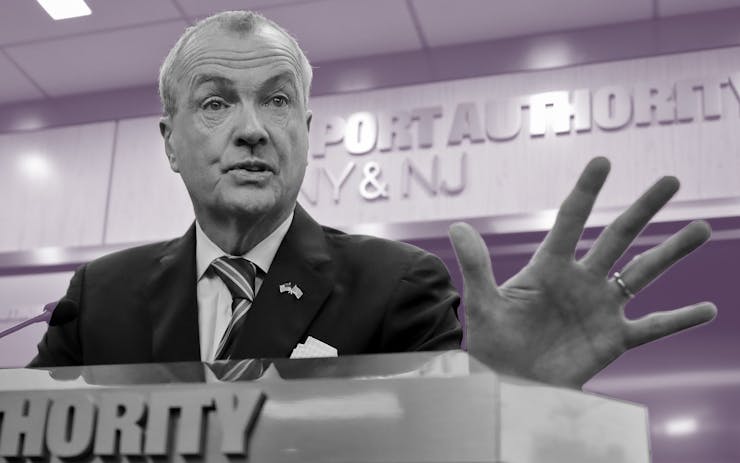New Jersey has a well-earned reputation as a difficult medical marijuana state. For years, patients suffered extremely limited access to products and dispensaries as Gov. Chris Christie purposely stalled the state’s MMJ program.
Gov. Phil Murphy wants to expand NJ's medical cannabis program, but he deferred to the Legislature. Will lawmakers come through?
Christie’s successor, Gov. Phil Murphy, signaled his intention to expand the state’s program earlier this year. In March, however, Murphy pumped the brakes. Legislative leaders indicated that they wanted to fix the system with a comprehensive bill that included adult-use legalization.
Murphy went along with the request.
But now, with the adult-use bill faltering in Trenton, medical marijuana patient advocates are wondering if they have time to move a standalone MMJ reform bill through the Legislature.
These Limits Are Ridiculous
Among the glaring items that need fixing: An onerous recertification process that requires some patients to get a doctor’s note every 30, 60, or 90 days. In New Jersey, a Medicinal Marijuana Program (MMP) card is valid for two years. However, the law requires a patient with a card to return to the doctor at least every 90 days for recertification.
In practice, this means a patient with a chronic condition can be forced to take the work time and expense to revisit a doctor every 30 to 90 days to get re-certified for a condition that is not expected to heal within a month—or even years.
No Initiative Process Available
New Jersey does not have a statewide initiative process, so any statewide vote on the issue would only result in a non-binding advisory. The Legislature would still have to act on that vote and pass a legalization bill, and that process can be appallingly slow. For instance, the state’s compassionate use medical marijuana act (CUMA) was introduced in 2005 and did not pass until 2010.
It took five years to pass medical legalization. Patients don't want to wait another five for reform.
Sen. Stephen M. Sweeney, senate president, has not given up hope. Behind-the-scenes negotiations are taking place at the statehouse. Friction between Sen. Sweeney and Gov. Murphy are causing divisions within the Democratic party, while all Republican lawmakers—with the exception of one—are on the record opposing S2703, the current legalization bill.
“You are not going to undo decades of the war on marijuana in a single piece of legislation,” says Ken Wolski, executive director of New Jersey’s Coalition for Medical Marijuana. Some legalization supporters, for instance, are actually opposed to S2703 because it doesn’t include a measure allowing state residents to grow cannabis at home.
The New Jersey Legislative Black Caucus (NJLBC) may be the bill’s strongest opponent. Sen. Ronald R. Rice, a Vietnam veteran, former police officer and the leader of the NJLBC, was an outspoken opponent of medical marijuana during the five years it crawled through the Legislature. He views cannabis use as the issue, rather than the laws surrounding it. Rice says he wants it decriminalized rather than legalized, in order to decrease racial disparities in marijuana arrests.
Proposed MMJ Changes
What would an MMJ-only reform bill include? The current non-adult-use measure, still alive in the Legislature, is known as Substitute Nos. 10 and 2426. It would:
- Update the list of qualifying conditions, and allow medical marijuana to be used as a treatment of first resort for any condition included in the list
- Allow patients to obtain authorization for up to a one-year supply in a single health care professional visit
- Establish the position of “institutional caregiver,” which is an employee of a health care facility who is authorized to obtain and administer medical marijuana to qualifying patients at the health care facility
- Allow patients to have up to two designated caregivers, or more with Health Dept. approval
- Expand the list of professionals who can authorize the medical use of cannabis to include physician assistants and advanced practice nurses
- Eliminate the requirement that a minor must see a psychiatrist before qualifying for medical cannabis
- Recognize out-of-state medical cannabis ID cards
- Gradually increase the maximum amount of medical cannabis that may be dispensed to a patient for a period of 30 days
- Provide that hospice care or terminally ill patients may have 30-day quantities that meet the patient’s treatment needs over and above the standard limit
- Remove a provision that limited distribution of edible forms of medical marijuana to qualifying patients who are minors
- Provide that qualifying patients and designated caregivers may not be discriminated against when enrolling in schools and institutions of higher education, or when renting or leasing real property
- Provide that medical marijuana is treated as the same as any other medication for furnishing medical care, including determining the individual’s eligibility for an organ transplant
- Establish protections from adverse employment actions for qualifying patients as well as protections in child custody cases
- Gradually eliminate the sales tax on medical marijuana
Change the NJ Dispensary Model
Wolski believes one of the main impetus’ of Substitute Nos.10 and 2426 is to change the nature of future Alternative Treatment Centers (which is what dispensaries are called in New Jersey).
“Patients in New Jersey pay some of the highest prices in the nation for their medicinal marijuana,” Wolski told Leafly. “Merely expanding the outlets where they can pay these prices is not doing a service to the patients. The vigorous competition that allows for market forces to influence pricing should bring the out-of-pocket expenses of the patients down to more reasonable levels.”
A home cultivation provision for patients might be a solution to both the availability and affordability issues, there’s no homegrow provision in the current MMJ reform measure.
While the Coalition for Medical Marijuana – New Jersey would like to see several other provisions added to the bill, it supports Substitute Nos. 10 and 2426.





